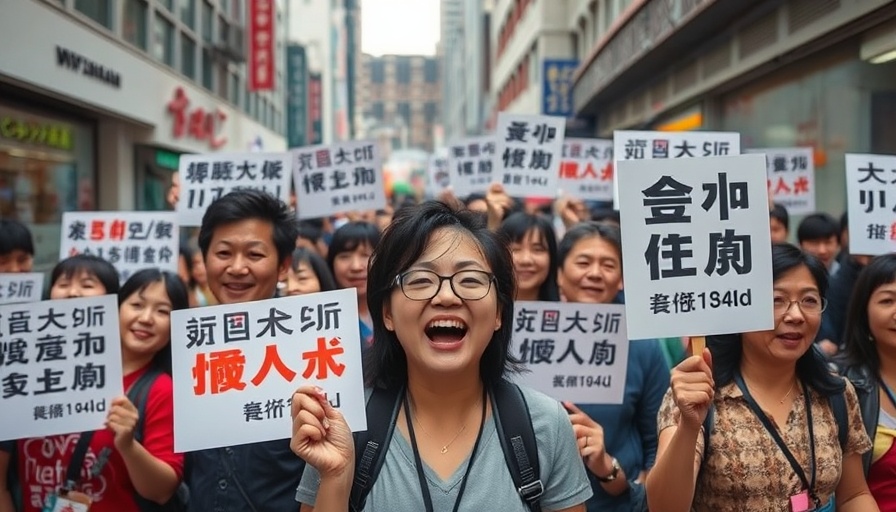
Taiwan's Recall Vote: A Crucial Crossroads for Democracy and Regional Stability
As Taiwan stands on the brink of a landmark recall vote, the stakes have never been higher. Voters are faced with the momentous decision to potentially remove 24 opposition lawmakers, a move that could significantly tilt legislative power toward President Lai Ching-te. This unprecedented campaign not only tests the resilience of Taiwan's democracy, but it also casts a long shadow over its delicate relationship with China.
A Glimpse into Taiwan’s Democratic Process
Historically, Taiwan has showcased its democratic evolution from decades of authoritarianism to a vibrant electoral system. The current recall vote, described by some as a "great recall," emphasizes the uniqueness of Taiwan's participatory approach, allowing voters the power to petition for the removal of elected officials. Political scientist Yanina Welp notes that such extensive recall efforts are rare globally, marking this event as both a triumph and a challenge for Taiwan's democracy.
Building Momentum for Change
Proponents of the recall argue that it embodies a grassroots mobilization that deepens democratic engagement. Activists like Molly Kuo champion this movement as a fundamental shift towards a more decentralized political landscape. As the recall effort gains traction, supporters draw on the history of democratic uprisings in Taiwan, pointing to the importance of citizen involvement in shaping the nation's political future.
Criticism and Concern: The Opposition's Perspective
Conversely, critics of the recall campaign express concerns about its implications for political plurality. They argue that facilitating such recalls undermines the opposition and contributes to an increasingly polarized environment. This perspective raises questions about whether dismantling opposition forces is genuinely a democratic advance or a strategic maneuver to consolidate power.
The Role of China: A Looming Threat
As Taiwan grapples with its internal dynamics, the looming specter of China's response cannot be overlooked. The Chinese government, wary of President Lai's pro-independence stance, may view a successful recall campaign as a direct challenge to its claims over Taiwan. Analysts suggest that this could provoke heightened tensions, prompting Beijing to assert more influence or pressure on the island.
Looking Ahead: Implications for Taiwan
The outcome of the recall election will undoubtedly shape the trajectory of Taiwanese politics and its relationship with China. Should President Lai secure a legislative advantage, he may pursue policies aimed at reinforcing Taiwan's sovereignty. However, this could incite further resistance from Beijing, complicating regional stability.
What Voters Need to Consider
As the recall vote approaches, Taiwanese citizens must weigh the implications of their choices. Reflecting on the past and considering possible future outcomes are essential for informed decision-making. Participating in this democratic process is not merely a civic duty; it is a matter of national significance. The path forward will require careful stewardship of Taiwan's democratic values in the face of external pressures.
As we await election results, the discourse surrounding Taiwan's democratic processes and regional tensions will remain as critical as ever. This moment serves as a reminder that democracy requires vigilance, engagement, and the courage to challenge the status quo.
 Add Row
Add Row  Add
Add 




Write A Comment